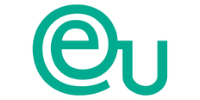Online Learning in 2023 - What Is It And How Does It Work?
Thanks to the rapid advancement of technology, online learning is a part of many institutions' course offerings around the world. Learn more about how it works in this article.
- Online Learning

Contents:
Types of Resources for Online Learning
How is Online Learning Assessed?
Recognition of Online Qualifications
Further reading:
- Top 10 Popular Online Bachelor Degrees
- Top 10 Popular Online MBAs
- Top 10 Popular Online Master's in Public Health
Thanks to the rapid advancement of technology, online learning is a part of many institutions' course offerings around the world. From certificates, PhDs, impactful online language learning and everything in between, learning online has never been so easy!
Offered by some of the world's top-ranked institutions, online learning offers you all the perks of attending your dream university, with the added convenience of a learning experience tailored to your schedule. With courses available in almost every subject, and flexible timetables to suit almost every lifestyle, students are increasingly turning to online learning as a viable alternative to on-campus study. It could allow you to study abroad remotely, at a university not in your home country!
Advances in technology now allow students to study entirely online while still socializing with classmates, watching lectures and participating in subject-specific discussions.
While some consider online learning to require a greater degree of self-motivation, institutions recognize that educational support is just as important as tutor feedback, and take great care to ensure that their students receive the same levels of support that they would receive on campus.
Online learning is the future of education, discover how it works and why it could be the perfect study abroad option for you!
The Facts and Figures About Online Learning
- More than 6 million students are currently in online courses as part of their higher education program
- Almost half of all students enrolled in online courses are educated exclusively through distance education
- 85% of students think that online learning is the same or better than the traditional classroom experience
Statistics taken from Purdue University & The National Center for Education Statistics.
Find an online program
Use our free, online search engine to search 5,000+ online degree programs. Start your online learning journey today!

Resources for Online Learning
In general, when taking an online degree program you might encounter resources like:
- EBooks;
- Journals;
- Videos;
- Recorded lectures;
- Quizzes;
- Discussion forums
- Live Q&A sessions; and
- Interviews.
The resources offered to you for learning online will depend on the institution where you take your online program. Some online learning programs may require you to order physical textbooks in advance by in the mail, but these are generally being phased out in favor of eBooks and online-only methods of delivery.
For those institutions that have made the transition to using 100% online resources, students can expect to study using a combination of cutting-edge technological resources with no need to travel to attend lectures, exams or in-person discussion sessions!
Taking an online learning program, you'll be an officially registered student at your institution and have access to the same resources as an on-campus student, like your institution's digital library, learning management system (like Blackboard), student union membership and more! An online degree is similar to taking a degree program on campus, but you have the freedom to direct your own study schedule.
Your school and your course instructor will determine the format for each individual course and will select delivery methods that are best suited to your course or program. What a Biology major needs to learn successfully online will differ from what an Art History major needs!
Online learning may be a completely new experience for you. If you're coming from a more traditional learning background, read on to discover how to make the most of the resources you may encounter in your online learning journey!
- eBooks, textbooks & journals
These written materials are essential resources in almost every course you'll take when learning online.
Using the reading list for each course, or on the advice of your course instructor, you'll need to dedicate the amount of time you need to reading and understanding the topics in the literature. The main advantage of using this medium (particularly eBooks) is the fact that they are completely portable, allowing you to study on the go from your computer, phone or tablet.
Pro tip:
When you’re researching a course or program, remember to check whether your textbooks are included in your tuition fees! You may have to pay extra for your textbooks, or they may be available as eBooks from your institution's library.
- Recorded lectures
An essential way of absorbing a large amount of information in a relatively short amount of time, lectures are a staple of online and campus-based learning. With online learning, you can attend lectures from your bedroom!
Pro tip:
If you can, make notes throughout your lectures; this will make it easier to review for exams, and any assignments you'll need to complete throughout your course.
- Interactive sessions
The greatest challenge an online education provider faces is how to replicate the face-to-face interaction and in-person discussions that on-campus institutions can easily provide.
The solution? Online degree programs often use a combination of discussion forums and interactive question-and-answer sessions to give you the interaction with other students and instructors you need.
Pro tip:
Before beginning an online discussion forum or interactive session, make sure you read the rules and requirements; some institutions may require you to create posts that have a minimum word count.
"For institutions using 100% online resources, students can expect to study using a combination of cutting-edge technological resources with no need to travel to attend lectures, exams or in-person discussion sessions."
How Will Online Learning Be Delivered?
Online students often think that their learning resources will be delivered via email, or even by snail mail! Most online institutions are moving away from this unreliable method of delivery.
The course or module’s learning resources will be delivered via the institution’s online learning environment or platform. The learning platform will vary depending on the software used, but it will usually consist of a central online platform that students can access from their personal PC, mobile or tablet.
One of the major benefits of utilizing resources that are hosted entirely online is unending flexibility!
As an online student, you can choose to access your course information and complete your assignments at any time. This allows you to fit study time in around your work, family and other commitments. This also means that students who wish to continue working while studying do not have to put their careers on hold. Get the best of both worlds!

How is Online Learning Assessed?
Students taking a degree program or an individual course online will still be tested at regular intervals throughout their study period to assess their understanding of the course materials.
For those new to online education, this process can be intimidating. But there's no need to worry! Online institutions are experienced professionals, they'll ensure that your assessments are fair, comfortable, and designed to help you make the most of your learning experience.
Discover the assessment types you're likely to encounter when taking an online degree program or course:
- Individual Assignments
These are probably the method of assessment that students will have the most experience with. For each assignment, you’ll receive your topic, deadline and word count. You'll be required to produce a structured, reasoned argument within the boundaries set out by your course instructor.
- Discussion activities
Face-to-face discussions between friends and colleagues is something that we all do every day. However, an online academic discussion requires a different set of skills, and might not come as naturally when your first start your online learning journey. Not to worry, you'll get the hang of it!
These activities will differ depending on the institution, but your course instructor will generally start each discussion off with a question or topic for debate. Students then need to research the topic and post their responses to the task demonstrating their own knowledge and understanding. Often, you'll end up in a debate with the ideas and views posted by fellow students.
- Journal activities
Like discussion boards, journal activities tend to be specific to online courses. A journal entry is an ongoing update giving you the opportunity to reflect back on what you've learned during the period under review, and how you'll apply what you've learned in the future. Online learning doesn't take place in classrooms, and journal entries are straightforward ways for course instructors to get a grasp of how you're progressing through the course and if you're gaining knowledge in the right areas.
Unlike other assignments, it is acceptable to use a subjective, personal style of writing in journal entries and refer to yourself in the first person. Think, "Over the last week, I've learned how to ..." Journal entries are often required, but ungraded - be genuine!
- Exams
Although they can be nerve-wracking, exams are a key way to test your learning.
Institutions may choose to allow students to complete their exams on their own personal computer, in a location of their choosing. Because tutors have no way to oversee a virtual exam or test, they are typically open-book and open-note. As a viable alternative, many institutions will offer the option of completing 'take-home' examinations in the form of an essay or final assignment. Some institutions may use exam software like virtual proctors, or tools to monitor if you visit new web pages.
How Do Online Institutions Prevent Cheating?
Misinformation abounds that online students can simply cheat their way to success by purchasing assignments or using revision materials during virtual examinations. This couldn’t be further from the truth.
Online learning doesn't mean easier learning! Online institutions should adhere to the same standards of excellence as brick-and-mortar institutions. As online learning technology has developed, virtual institutions have perfected digital processes to prevent cheating and/or plagiarism.
Course instructors and online institutions work hard to ensure that cheating is almost impossible in an online course. By making use of advanced plagiarism detection software, all submissions you make for your online course, from examinations to assignments are scrutinized electronically using anti-plagiarism software, and then will also be subject to additional checks by your instructor.
"Course instructors and institutions work hard to ensure that cheating is almost impossible on an online course."

Recognition of Online Qualifications
Many online institutions are fully accredited institutes of higher learning. Your institution will clearly state the type of qualification you'll gain from pursuing an online program with them - from bachelor to master degrees, graduate certificates, and everything in-between. Use online learning to gain the qualifications you need!
Despite this, students researching online institutions are still encouraged to research their accreditation, the type of qualification you'll earn from an online learning program, and the nature of the online institution itself.
The rules for accreditation and the types of qualifications an online institution is permitted to give students can vary depending on a number of factors, including:
- The country the online institution is based in;
- If the institution is public or private;
- The institution's official title - university, school, academy etc.; and
- The type of program the institution is offering - degree, certificate, qualification.
Students use online learning to studying entire degree programs, get particular certifications to take the next step in their careers, or to pursue a practical qualification available online.
No matter why you're looking to learn online, ensure that you have a full understanding of the type of institution you'll be studying at, and how the qualifications they offer will be recognized in your country or by future employers before signing up!
Many online institutions will partner with campus-based universities to create and deliver their online programs. This enables an online institution to benefit from the specialized knowledge and technology that an online provider can offer, while the online institution is then able to offer validated degree courses through the brick-and-mortar institution.
"Students considering online study should not be deterred by old-fashioned ideas about ‘real’ degrees only being awarded by campus-based institutions."
Online Learning and Employment
Once you have an in-depth understanding of how your qualifications earned online are recognized in your country, you'll be able to plan how you'll talk about your online learning experience to employers!
Many employers make no differentiation between online degrees and degrees earned on campus - as long as your qualifications are recognized in your field. For some employers, gaining your qualifications online will provide you with a unique skill set to help you stand out from the crowd of other applicants.
Students considering online study should not be deterred by old-fashioned ideas about ‘real’ degrees only being awarded by campus-based institutions. In fact, many employers now recognize that studying online (and part-time) takes a large amount of dedication and commitment. The passion and drive needed to achieve your qualifications online are characteristics of many star employees across industries.
Think studying for an online degree is something uncommon? Think again; the latest statistics show that around 33% of college students are taking at least one course online and “eventually, one-third of college students expect to study online, one-third expect to study only on campus, and one-third will do both.” This increased participation will naturally lead to increased recognition of online learning. Furthermore, there is a 71% expected increase in online enrolments overall.

Support for Online Learning
An important aspect that determines the quality of a study experience is the level of support that students receive. Many students worry that online institutions will not be able to provide the support that they need. This concern is increasingly being recognized by online learning providers, and many are working hard to ensure that students’ needs are met in all areas.
The main concern that potential students have regarding support is the lack of face-to-face help that an online course provides; however, by using technology like video calling and the more traditional phone and email, virtual institutions are increasingly bridging the gap between online and on-campus student support.
Student Support Teams
A dedicated Student Support team often forms the core of online institutions' student support functions. The sole responsibility of this team is to provide pastoral care and support. Online (and part-time) students can experience problems and issues that are unique to this mode of study, and online learning institutions' Student Support teams will be experienced and sympathetic to the range of issues experienced by online learners.
Student Support teams are often trained in providing advice on issues from financial troubles to family commitments, and can range from minor technology troubleshooting to major life events like a bereavement.
This isn’t the only support you receive on an online course; your fellow students are also a great source of help and advice. Using online discussion forums provided by the institution, WhatsApp and even Facebook groups, students can create an online community that supports each classmate as they overcome obstacles together as a group.
In-House & Freelance Instructors
The role that personal and pastoral support plays in an online student’s success cannot be overstated. However, academic support also plays a vital role in creating a supportive learning environment.
Online institutions vary, but many utilize a combination of in-house and freelance course instructors to create and deliver their courses. These instructors will be qualified subject experts and will be able to give academic guidance and feedback at any point in the course.
Academic feedback can sometimes be tough to receive, particularly if you’ve put a great deal of effort into a piece, but this can often be the first step towards improvement and greater confidence. Your instructors will always provide constructive commentary, giving tips and advice for the future, and this can then lead to improved confidence in decision-making and broader subject-specific understanding.
Depending on the institution, your instructor should also be available for individual sessions, and you should also be able to contact your instructor directly. Individual sessions with your instructor will enable you to ask questions about topics covered within the course, and request further feedback on your progress and areas of development.
Pro tip:
During your course research, make sure you’ll receive the academic support you’ll need; check the office hours and availability of your instructors, the turnaround time for receiving your grades and the qualifications of the course leaders.
Popular Online Universities

EU Business school online
Courses available in: Business Administration (both BBA and MBA), Master in Innovation & Entrepreneurship, Master in Fashion and Luxury Business

IUBH Online
Courses available in: Bachelor Data Science, Masters of Business Administration, Master Computer Science & IT Security, Master Artificial Intelligence, MBA Marketing

University of Bath Online
Courses available in: Business Analytics MSc, Applied Economics (Banking and Financial Markets) MSc, Artificial Intelligence Online MSc

University of Essex Online
Courses available in: BSc (Hons) Business Psychology, MSc International Healthcare Management, Master of Education (M.Ed), Graduate Certificate in Infection Control
Want more online degree suggestions?
Use our free, online search engine to search 5,000+ online degree programs. Find your dream online degree program today!

Keystone Team
Author
The Keystone Team is comprised of experienced educators and advisors dedicated to providing valuable resources and advice to students all over the world.
Read related articles

Top 10 Popular Online MBAs

Top 10 Popular Online Master's Degrees in Computer Science & IT
